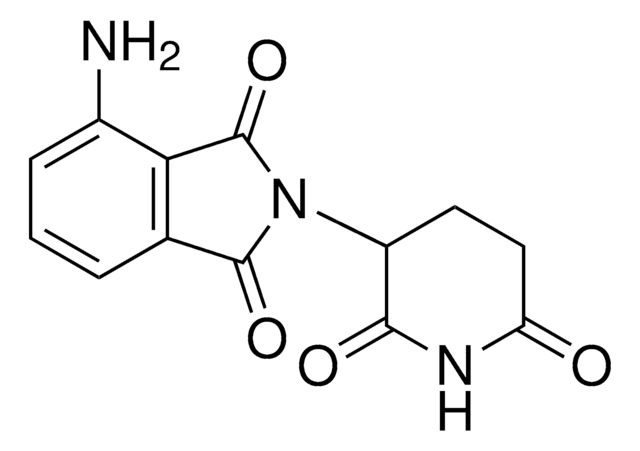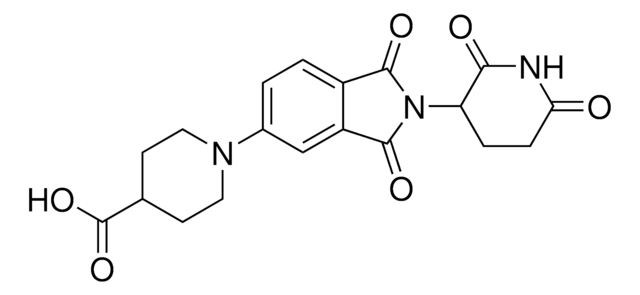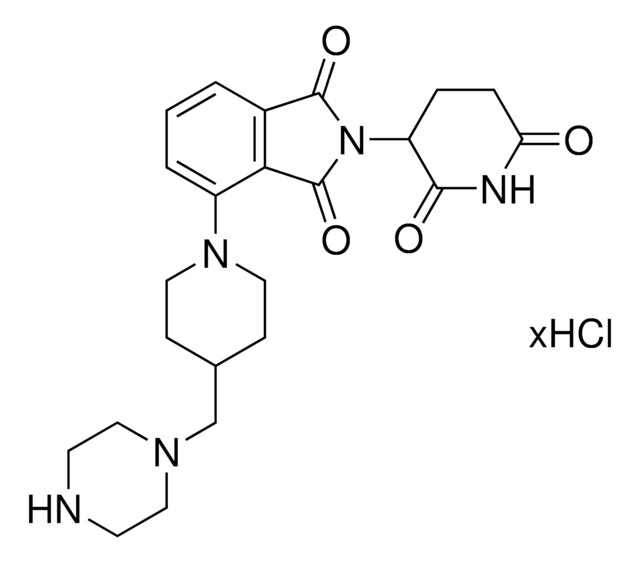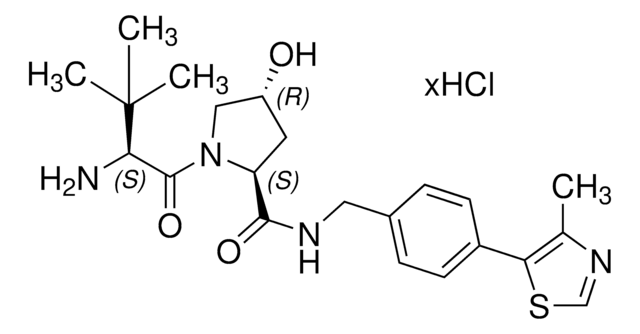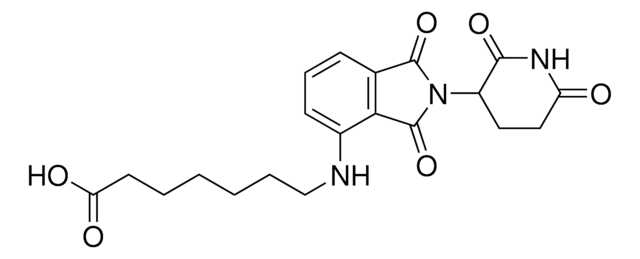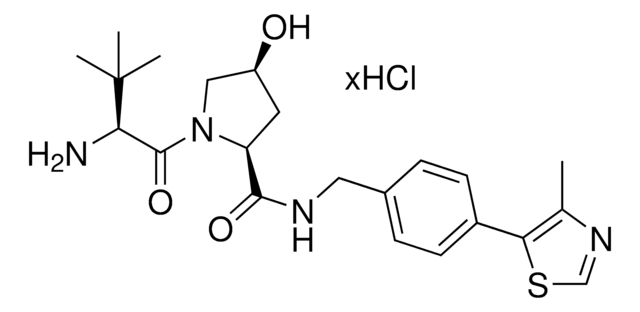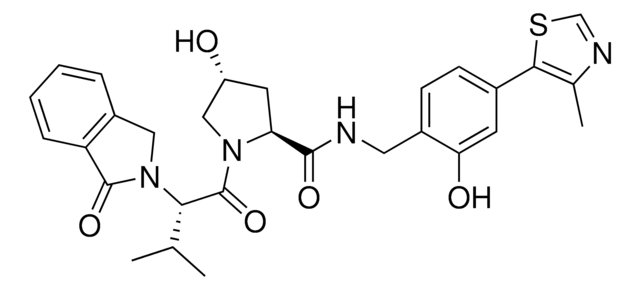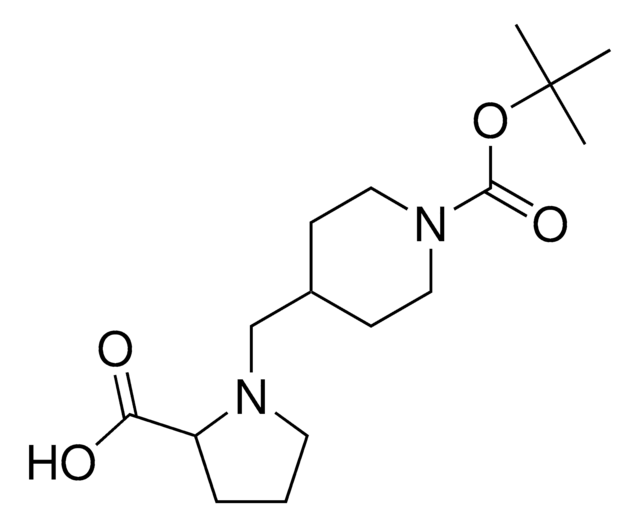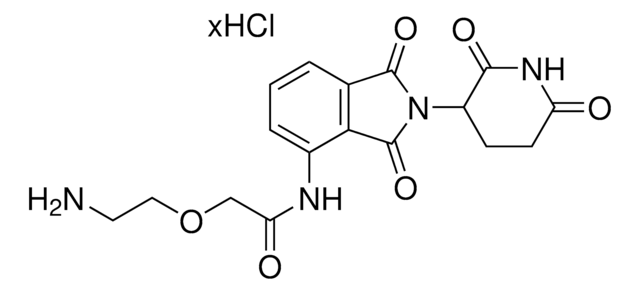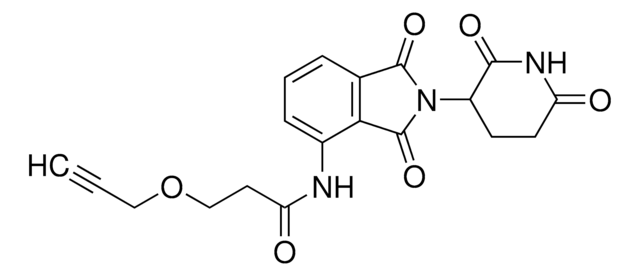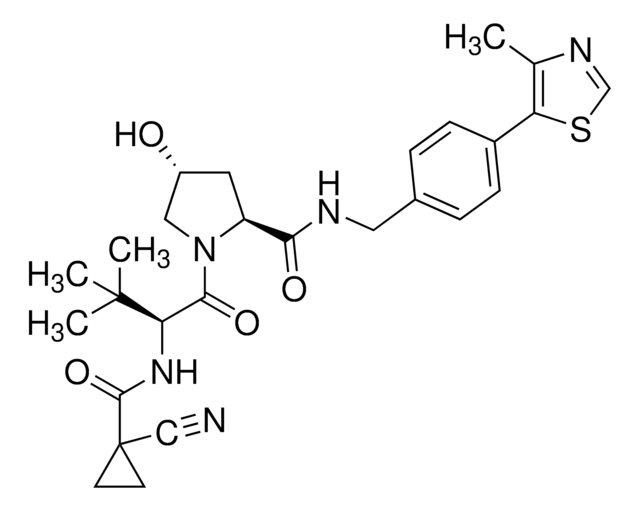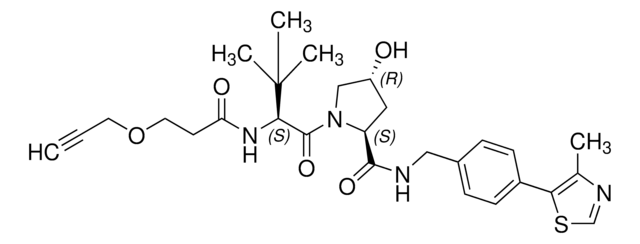901494
N-Methylated pomalidomide
≥98%
Sinónimos:
4-Amino-2-(1-methyl-2,6-dioxopiperidin-3-yl)isoindoline-1,3-dione, E3 Ligase ligand methylated negative control, Ligand for PROTAC® research
About This Item
Productos recomendados
ligand
N-Methylated Pomalidomide
Nivel de calidad
Análisis
≥98%
formulario
powder or crystals
idoneidad de la reacción
reagent type: ligand
Condiciones de envío
wet ice
temp. de almacenamiento
2-8°C
cadena SMILES
O=C(C(CC1)N(C2=O)C(C3=C2C=CC=C3N)=O)N(C)C1=O
Aplicación
Otras notas
Portal: Building PROTAC® Degraders for Targeted Protein Degradation
Hijacking the E3 Ubiquitin Ligase Cereblon to Efficiently Target BRD4
Targeted Protein Degradation by Small Molecules
Small-Molecule PROTACS: New Approaches to Protein Degradation
Información legal
Producto relacionado
Código de clase de almacenamiento
11 - Combustible Solids
Clase de riesgo para el agua (WGK)
WGK 3
Punto de inflamabilidad (°F)
Not applicable
Punto de inflamabilidad (°C)
Not applicable
Elija entre una de las versiones más recientes:
Certificados de análisis (COA)
Lo sentimos, en este momento no disponemos de COAs para este producto en línea.
Si necesita más asistencia, póngase en contacto con Atención al cliente
¿Ya tiene este producto?
Encuentre la documentación para los productos que ha comprado recientemente en la Biblioteca de documentos.
Los clientes también vieron
Artículos
Partial PROTACs are a collection of crosslinker-E3 ligand conjugates with a pendant functional group for covalent linkage to a target ligand.
Protein Degrader Building Blocks are a collection of crosslinker-E3 ligand conjugates with a pendant functional group for covalent linkage to a target ligand.
Nuestro equipo de científicos tiene experiencia en todas las áreas de investigación: Ciencias de la vida, Ciencia de los materiales, Síntesis química, Cromatografía, Analítica y muchas otras.
Póngase en contacto con el Servicio técnico
